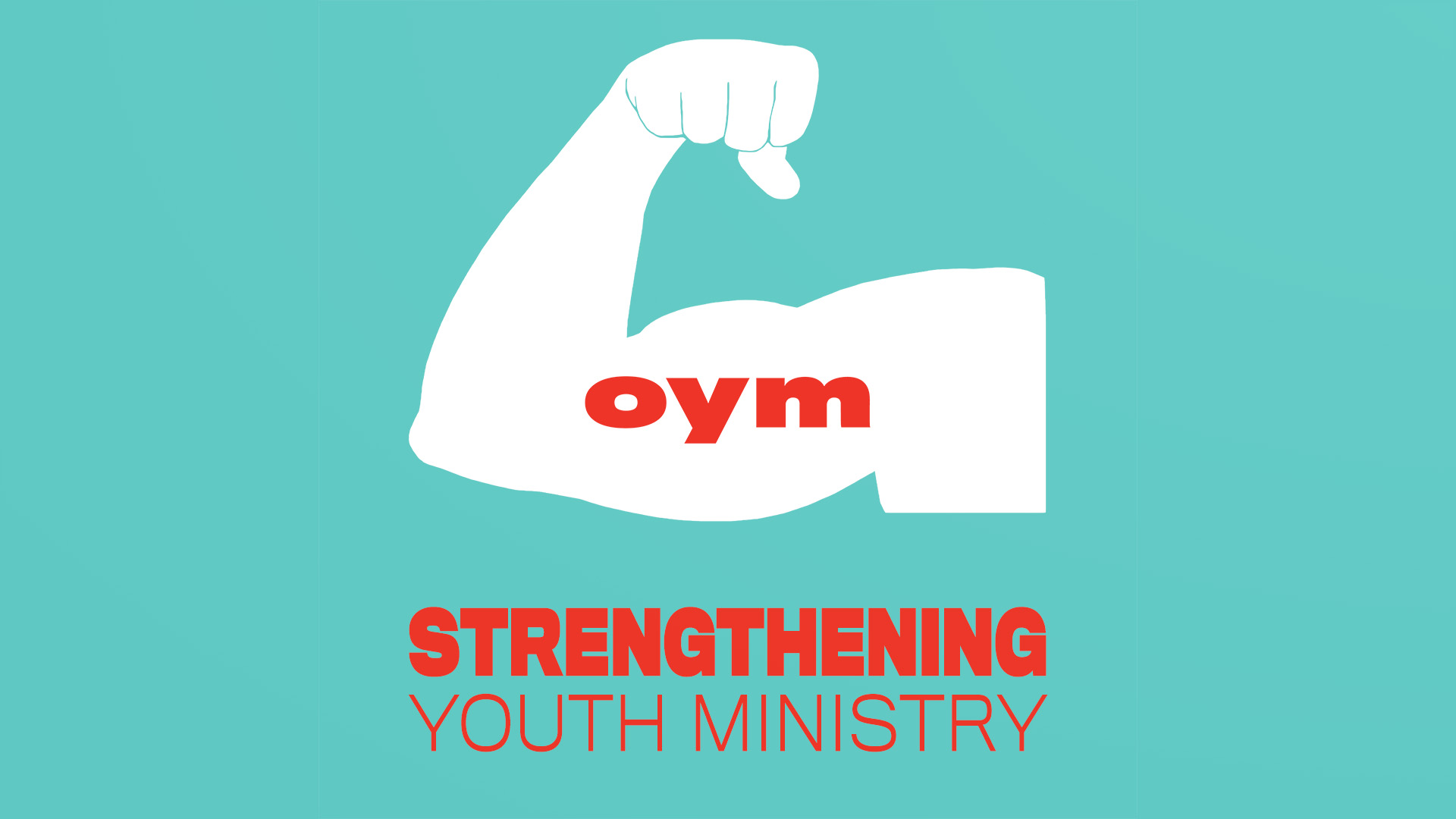
How to Approach Anxiety in your Ministry Program
The National Institute of Mental Health* determined that 32% of youth aged 13-18 have an Anxiety Disorder. 32%. This this staggering! It’s the highest percentage of any mental health disorder in youth. (For the same age group, compare 32% with Anxiety Disorders to 13% with Major Depression, 9% ADHD, and 3% Eating Disorders). Anxiety can be experienced in a variety of ways: chronic stress, excessive worry, feelings of restlessness, preoccupation, panic, physical symptoms, and avoidance behaviors. Sometimes there are clear triggers that cause these feelings (e.g. academic concerns, specific social situations, or trauma), but it’s important to remember that in many cases, the fears experienced in clinical cases of anxiety are illogical. Individuals may be able to intellectually identify that their triggers “shouldn’t” cause them stress to this extent, but they feel helpless because they still experience these unwanted feelings.
Fortunately, anxiety is very treatable! However, only a jaw-dropping 37%** of individuals with anxiety reach out for treatment (talk therapy or medicine). Here’s what you can do to help teens in your youth ministry programs:
1) Come, Holy Spirit! Pray often for your teens.
The most fundamental task of the youth minister is to bring Christ to teens, and to do that, we have to know Christ ourselves. This way, when we are in a situation that requires us to lean on the movement of the Holy Spirit, we can recognize His voice.
2) Be awesome. Establish a healthy, trusting relationship.
Second to knowing Christ, building a genuine and healthy relationship with teens is essential. Teens need to know that they matter to you, or why would they choose to disclose their struggles with you? Teens also need to know that their relationship with you is different than a friend; this is why appropriate boundaries are so important. We need to model Christ for them, and offer them something that their peers cannot- a reliable, grounded adult who cares for them and who can model to them in the real time of the relationship what it means to have a healthy and loving relationship with an adult. Youth ministers need to be trusted to maintain confidentiality, but also abide by the limits to confidentiality.***
3) Share the wealth. Communicate with parents and make referrals when necessary.
While it’s natural for teens to not want you to tell anyone about their struggles, this is often necessary to actually be helping them, and not just listening to them. Hear what they are saying and respond. It is dangerous to be in a situation in which you know something is going on, but you aren’t doing anything about it. It can make a teen think nothing is wrong, or they are not worth more than their current experience. Anxiety is highly comorbid with other disorders: depression, eating disorders, and substance abuse. If a teen is sharing about significant stressors with regard to anxiety, it is possible there is more to the story. Recommend counselor or consultation with a medical doctor.
But when to recommend? Clinical significance in anxiety disorders is usually marked by a disturbance in functioning- the anxiety is getting in the way of their life.
Warning signs:
- Changes in grades, sports, extra-curriculars, or physical appearance
- No longer interested in or begin to avoid what used to interest them
- Social isolation
- Recurrent complaints of physical issues without a physical cause (sick to your stomach, difficulty breathing, headaches)
- Difficulty concentrating, inability to control intrusive thoughts
- Easily fatigued, difficulty sleeping
When a teen’s functioning is affected by anxiety, they (or their friends) may come talk to you. Or you may reach out to them. An easy way to do this is to approach them, and say something like, “Hey I noticed ________.” Then let the teen respond.
If a teen is expressing one or more of those warning signs, it may be time refer out and to talk to a parent.
Parents are the first line of defense for a teen, and they usually hold the insurance cards.
Offer a few different ways you can help a teen bring their parents in the loop:
- I’ll go with you to talk to them.
- We’ll decide on a time you are going to talk with them, and then I’ll make a follow-up phone call to see what I can do to help support your parents. (This is also important to make sure the teen actually tells their parents.)
- I can tell them for you if you can’t tell them on your own.
If you don’t know that to do or if you should disclose something or not, consult with someone YOU trust. You don’t have to share the teens’ name to ask for advice on a situation. Consider consulting your pastor, a counselor/social worker, or someone in the Office of Youth Ministry.
4) Channel your inner saint. Model positive mental health.
Be healthy yourself! Be a person of prayer. Go to counseling when you need it. Have a social life! Wear a cheerful face that expresses the joy of your love of God.
Monitor your language- always saying, “Oh I’m so busy…” can make people who look up to you think they need to be “busy” to have value. Show them what it looks like to have a good work/life balance.
You should not always be available, always be in your office, or always available to answer the phone or email or a text. Constant availability is not real life, and can be a sign of an unhealthy boundary. Combat teen culture that says you must respond to everything in two minutes. Office hours and advertised or routine times that you or your core team are available to teens provide them with a healthy expectation of your presence and care for them. This can be as simple as making it a habit to be around for relational ministry time before and after youth nights or events.
Of course, emergencies should be met with the appropriate timeliness. But a teen texting “Hi” does not always merit a response. Conversations in person are always more fruitful than through a screen. The Archdiocese has guidelines to help you model this behavior with the no texting after 9pm rule and copying another adult on electronic communications.
5) Beware the over-share! Limit self-disclosure.
Sometimes it can be appropriate to self-disclose our own struggles: to help normalize the experience (they’re not the only one), or to give teens insight or information we’ve learned from our own experience. While sometimes helpful, self-disclosure about our own struggles can quickly make a conversation all about us, not the teen. Or it can even lead to well-intentioned, but damaging, boundary crossing. Sharing about personal experiences with difficult topics, especially clinical issues, should be very limited.
6) Prayer is always the answer…but it’s not always the ONLY answer.
There is a tendency in Catholic culture to think that if you have anxiety, it means you don’t trust God enough. This can be possible (don’t we all need to trust God more!), but clinical anxiety is, by definition, difficult to control. We need to help teens, not shame them. While prayer is always helpful, it is not always the only answer! (E.g. Prayer and counselingJ)
Finally,
7) You rock! Encourage and affirm your teens.
You’re doing a great job. Did you know that? Here, listen to Jesus speak to His Father about you, dear disciple of God, “As you sent me into the world, so I sent them into the world. And I consecrate myself for them, so that they also may be consecrated in truth. I pray not only for them, but also for those who will believe in me through their word….Father, they are your gift to me. I wish that where I am they also may be with me…” (John 17:18-20, 24)
See how nice that is? We all need a little self-esteem boost from someone who sees us, who knows us, who loves us.
Offer that gift to your teens through words of affirmation. St. Paul and the early disciples were always encouraging the communities of believers in the early Church. They let their people know that they gave thanks to God for them (1 Cor 1:4, Phil 1:3, Rom 1:8, Col 1:3-5), identified the good works they saw in them (1 Thess 1: 3-4, 1 Philem 1:5-7), even boasting about their community’s endurance of faith to other people of God (2 Thess 1:4). St. Paul said that the people of Corinth were a living letter of Christ, written not on tablets of stone, but on tablets that are hearts of flesh (2 Cor 3:1-3)! Let us be imitators of Christ! (Eph 5:1, 1 Cor 11:1)
Thank you for loving God’s teenagers. May the Holy Spirit be with you as you journey with teens towards Christ.
*The National Institute of Mental Health; https://www.nimh.nih.gov/health/statistics/any-anxiety-disorder.shtml
**The Anxiety and Depression Association of America; https://adaa.org/about-adaa/press-room/facts-statistics
***Confidentiality should be breached when hurt is involved: 1) When the teen is hurting or going to hurt him/herself; 2) When someone is hurting the teen, or 3) When the teen is threatening to hurt someone else.





